Burnt Out: The Restaurant Industry and its Bittersweet Legacy
Investigating the extent of abuse and toxicity in restaurant kitchens
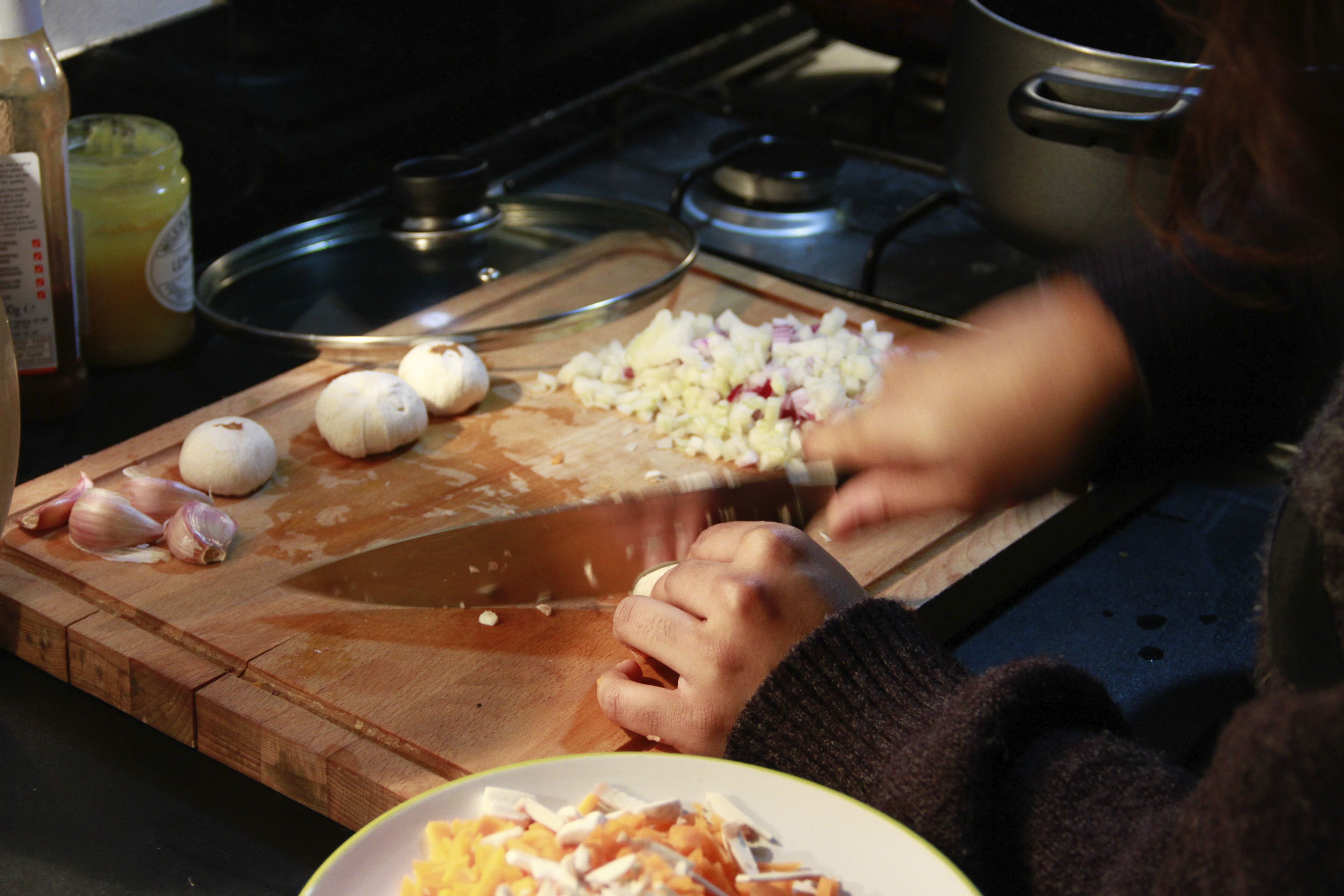
The doors swing, all of a sudden the ambience of jazz music dissipates, muddled with incoherent slashes of foul-mouthed insults "Fuck you chef, you're a useless fucking idiot" screams one chef. The passion for cuisine is radiating effervescently all the while juxtaposing with the chaos of the kitchen. The doors feel like a twilight zone, stopping the chaos from seeping out into the mundane lives of diners, as they gorge on their very expensive steak with causal conversations an anecdotes, with no clue on the chaos that ensues upon the preparation of their dinner.
Do you know what goes on behind kitchen doors when you go to eat at some of your favourite restaurants? Chaos ensues. And it all carries on up until that last check is dealt with.
There has been various depictions of what goes on behind the scenes in the culinary industry, from New York bestsellers such as Bourdain's Kitchen Confidential to films/TV shows that visually illustrate such horrors and joys of this industry such as Boiling Point and The Bear. But how much of this depiction rings true?
Many professionals within the industry have mostly agreed that such depictions ring true. Others are less keen to admit the existence of such issues as the shortage in the UK hospitality industry has not gotten better, and this reputation that the industry has held for a long time has not helped this case, albeit there are other factors that are resulting in the shortage in restaurant kitchens as well.
The Hulu series "The Bear" is this summer’s hit show. But for some people who work behind the scenes in restaurants, it also hits a little too close to home.
— Jennifer Nelson (@Jennife40123247) August 31, 2022
We asked 7 female chefs to weigh in on ‘The Bear’ and toxic kitchen culture. They had a lot to say. - The Boston Globe
... pic.twitter.com/tRNsY1Vffm
Abuse, whether verbal, emotional, sexual or physical has made its way into kitchens. But how does the line between directness and abuse get jumbled up?
The foul-mouthed abusive behaviour is also increasingly prevalent in the mainstream media landscape through behaviours of notable chefs such as Marco Pierre White and Gordon Ramsay being glamorised and admired by entertainment consumers for their knack for "keeping things real".
Gordon Ramsay has garnered himself the reputation of not only a chef, but a business-savvy and reality TV guru of sorts. Trained by Pierre White, Ramsay also upholds his harsh and borderline abusive delivery of speech passed on from his mentor. As he goes on to host shows like Hell's Kitchen and Kitchen Nightmares, he also reminds the audiences and the contestants of the ever-so harsh standard that they can expect if they "make it" in a real kitchen.
It may be apparent to most consumers of entertainment that Ramsay's overtly harsh and at times unacceptable way of speaking is rather exaggerated for the TV ratings. After all, outrage repackaged neatly into viewership is entertaining to watch. However, back in the real world, chefs working in kitchens may be subject to such behaviour regardless of how exaggerated the depictions of such behaviour may be on TV. However, there are many reasons why this may be the case
Where are the people?
There appears to be a shortage in the UK hospitality industry, is there more than one factor at play here?
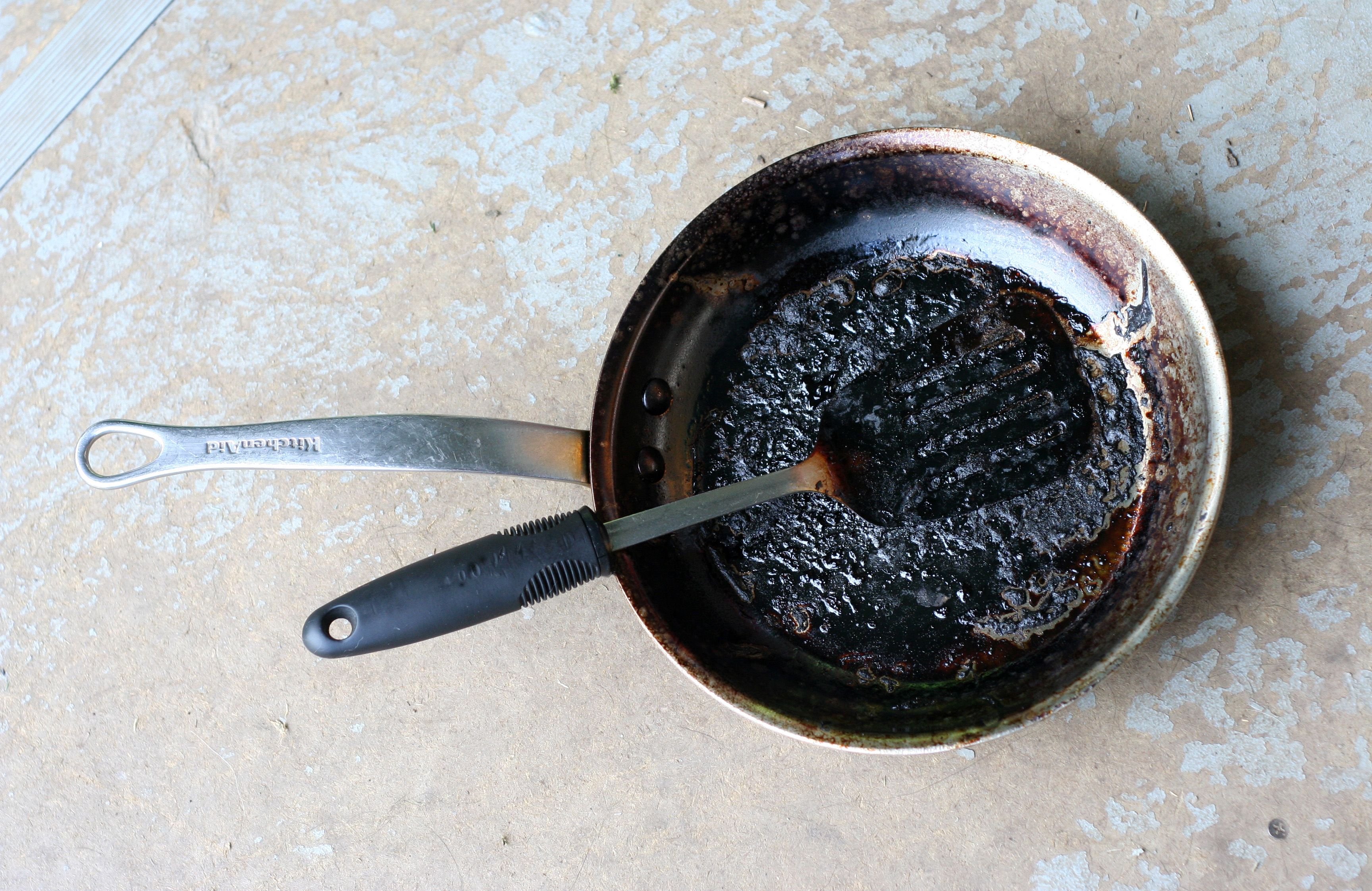
UK Hospitality said there was around a 10% shortage of head chefs and up to 21% for production chefs in the UK. These shortages have far-reaching implications for the industry, impacting the smooth functioning of kitchens, overall dining experiences and the bottom line for operators.
For over two years hospitality has had the highest vacancy rate of any sector, with the most recent Office for National Statistics figures showing the UK’s average vacancy rate is at 3.2% with hospitality almost 2% higher than that at 5.1%.
Annual food inflation jumped to 13.3% in February 2023, up from 12.4% in November, according to the latest monthly report from trade body the British Retail Consortium (BRC) and the data firm Nielsen. This is a direct impact of the cost-of-living crisis.
Over half of Brits (consumers in this context) plan to cut back on their discretionary spending in order to put the money towards energy bills. Of these people, six in 10 intend to achieve this by reducing how often they eat out (Barclaycard).
77% of UK hospitality firms reported a decrease in diners and drinkers at the end of last year (UKHospitality, BBPA, BII and Hospitality Ulster).
The combination of less consumers and more spending by the restaurants due to rising costs and inflation therefore directly impacts how much staff the kitchens can afford to have in this time of difficulty. In fact, recent survey data from CGA Insight on behalf of the sector shows that 61% of hospitality businesses are experiencing staff shortages and widely reduced their trading hours and days as a result.
The shortage is also is in part fuelled by Brexit which has resulted in tougher immigration laws. The movement between the UK and EU is not as seamless as it used to be, which is a problem considering the UK relied on culinary talents from overseas.
Restrictions apply to the number of workers the government deems as ‘low skilled’ roles entering the UK; which is a concern brought up by University of East London hospitality lecturer Zoe Adjey.
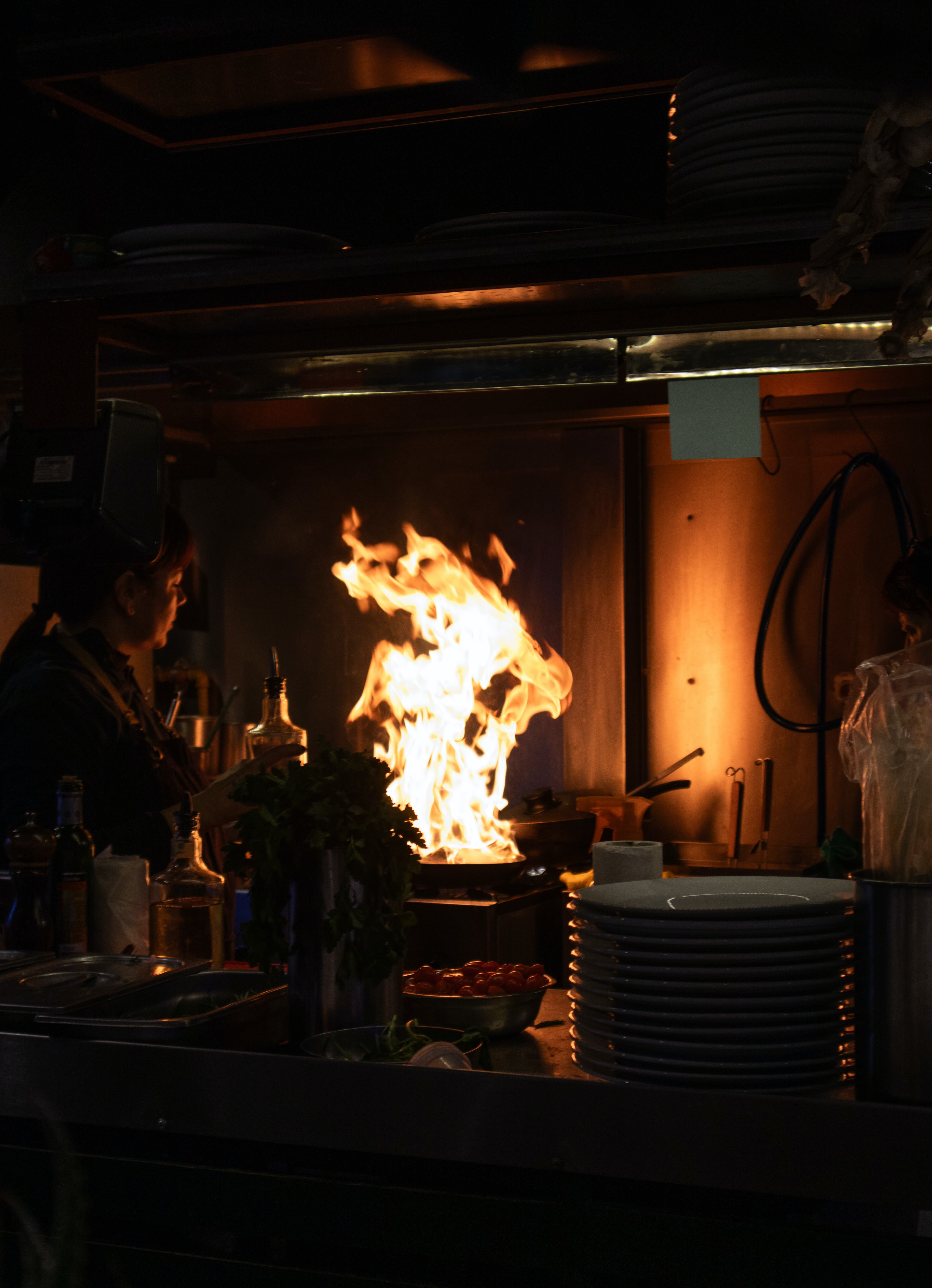
Zoe Adjey (Lecturer at UEL): "That's not real life, that's not how kitchens work, and there are moments of passion in every work place but it's not sustained. this is the 21st century and we've got really strong experience about how we work and how we treat people"
Zoe Adjey (Lecturer at UEL): "That's not real life, that's not how kitchens work, and there are moments of passion in every work place but it's not sustained. this is the 21st century and we've got really strong experience about how we work and how we treat people"
Adjey says that the shortage in the industry is certainly not solely to be blamed on abusive and mentally detrimental work environments but rather because of all the external elements, most notably from Brexit.
Adjey had previously worked in front-of-house roles before delving into academia and delivering courses in hospitality, management, leadership and management, human resources and development skills with perspective of business management and finance.
Adjey also emphasises that the reputation that the industry has garnered - in regards to abuse and toxic work behaviour in the kitchen- is that "it's not the norm, it's the exception."
However, some chefs who I have spoken to during this investigation, who have been affected by such behaviours of abuse in kitchens, would beg to differ with this notion of exception proposed by Adjey.
The issue isn't that there is a "false perception of abuse" that exists that puts people off of working in the industry, but rather that the perception of abuse in the industry is being dismissed as other reasons are more prominently visible through being represented in nationwide statistics while the topic of abuse is put on the back-burner.
Why is shortage of kitchen staff a problem?
It is also important to note that kitchens being short-staffed also plays a huge factor in chefs being overbooked at work. According to chefs in the industry, they eventually feel burnt out from working multiple double shifts, taking minimal holiday and sick leaves to cover for the lack of staff that it would take to run the kitchens. Therefore, this may be causing a vicious cycle to continue, where the lack of staff is resulting in further lack of staff in the industry.
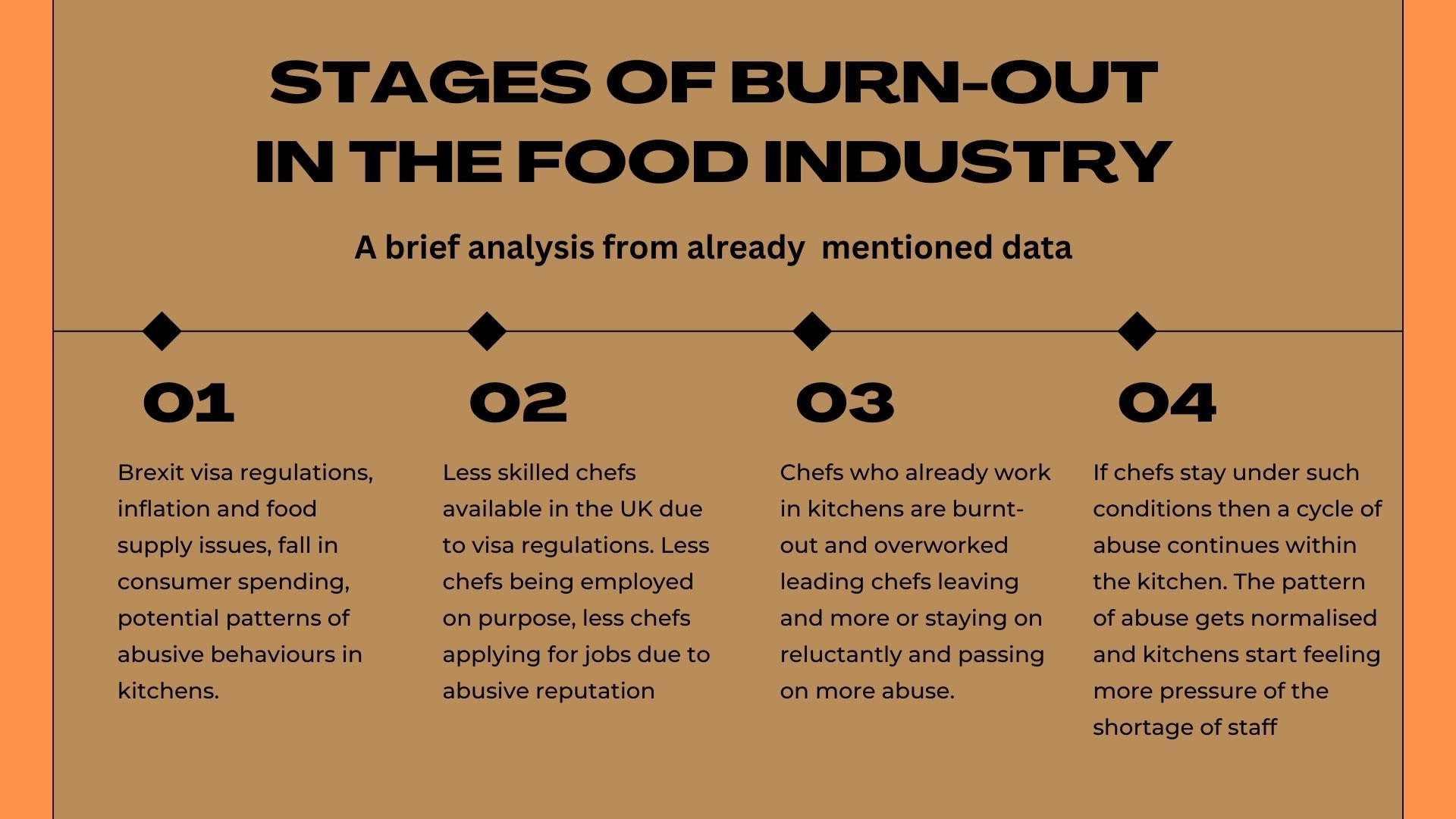
Analysis Table by Saiba Haque (based on data mentioned in this section).
Analysis Table by Saiba Haque (based on data mentioned in this section).
Hover with cursor on the circles for more details
In regards to this notion, anonymous interviewee Anon A said:
"The industry is suffering of course it is more people are realising they don't want to spend their careers getting abuse and burnt out"
Direct? Or downright cruel?
From speaking to many people in the hospitality and food industry, many suggest chefs can get away often with being more forward rather than passive due to their work environment. Work in the kitchen is fast-paced and swift. This means that pleasantries are often shortened or eliminated from speech in the kitchen.
According to this Guardian article, not saying please is not considered rude in the kitchen even though it may be rude when omited in other conversational scenarios.
The directness and forwardness of speech, along with the elimination of excess verbiage in the kitchen certainly keeps things quick. The fast-paced, blunt-talking instructional nature of speaking in the kitchen is therefore made to be a banal occurrence within the industry.
From watching Ramsay's behaviour onscreen it can be hard to deny that such attitudes of blatant abuse in the industry is often glorified in the media through reality TV. However, this behaviour does indeed persist and is depicted immensely well in relatively recent TV shows and movies like The Bear and The Menu.
"As an art form, cook talk is, like haiku or kabuki, defined by established rules with a rigid, traditional frame-work in which one may operate. All comments must, out of historical necessity, concern involuntary rectal penetration, penis size, physical flaws or annoying mannerisms or defects."
However, directness and straight-forwardness is very different to behaviours of blatant abuse. Sure, many commercial kitchens have a reputation for fast-paced, foul-mouthed speech with a plethora of creative insults. But at some point the line gets blurred, and it can lead to behaviours of abuse with little accountability. On this matter, anonymous interviewee Anon A said:
"The nature of the kitchen is fast-paced, of course there is no time to call someone out on their bullshit in the middle of a shift and sort out said issues. There's resentment that builds up there and there's also little to no accountability taken, as it's never talked about again"
Abuse,
Toxicity,
Bullying,
...The Kitchen is on Fire
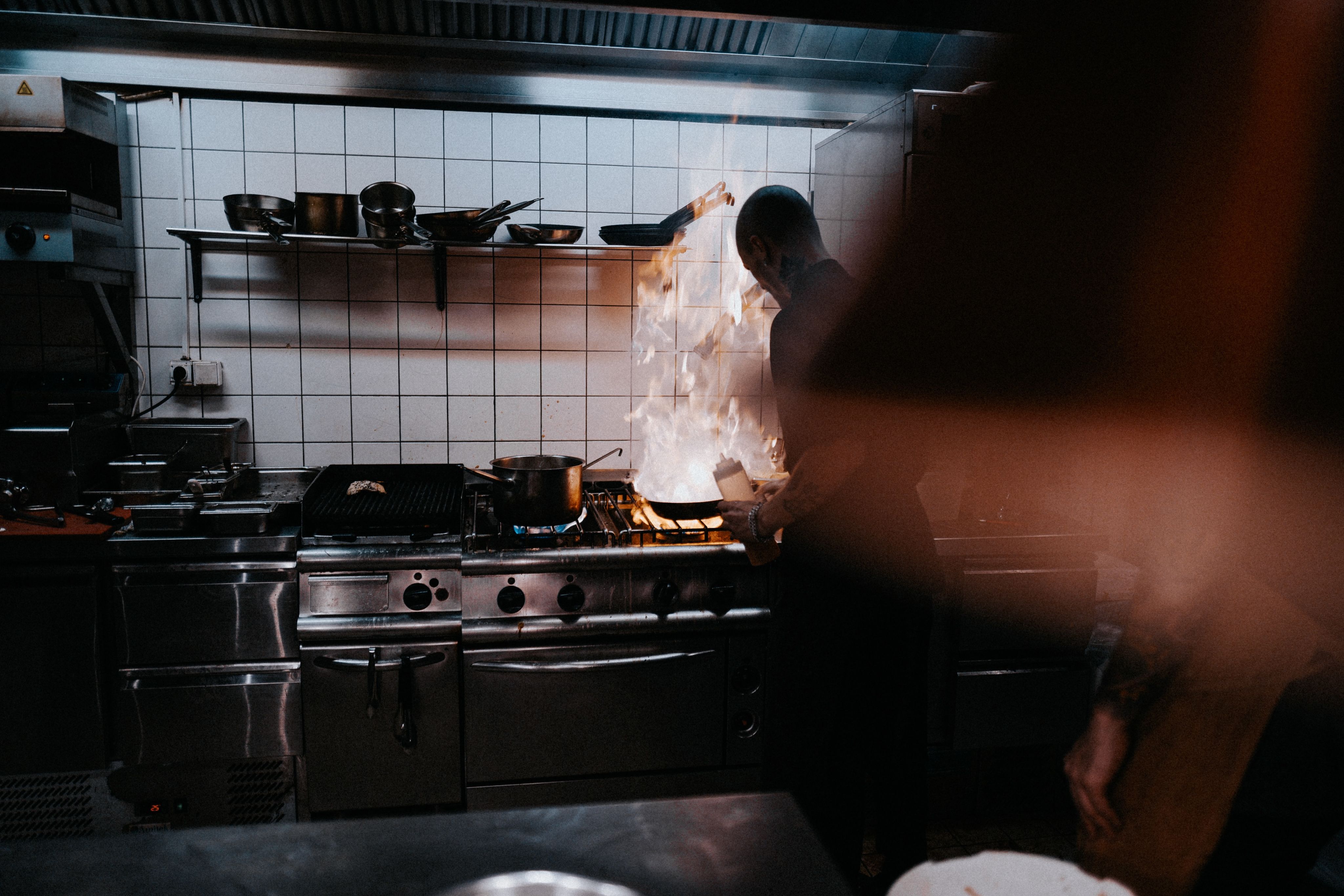
So we have established that there is a shortage of skilled chefs in the UK market especially post-Brexit due to visa regulations. The shortage of chefs and the tight affordability in restaurants is in-turn resulting in lesser hires in an average London restaurant kitchens. This is therefore leading to the small brigade of kitchen staff being overworked with multiple double shifts within a week and little room for holidays or sick leave.
Although the labour shortage is more apparent and easy to visualise and quantify through the explanations of immigration, visa regulations and the post-covid industry, there is little focus on spearheading research or in depth investigations concerning the possibility of people leaving the industry due to abusive treatment in their workplace.
Former chef, Arek Brzeziński, on abuse in the kitchen environment: "It (abuse) gets passed on from one person to another and it creates a really hostile environment after a while".
Former chef Arek Brzeziński, 26, started off with gaining culinary experience at a very young age, with his NVQ Level 3 Professional Cookery at City College Norwich.
On his time working in the industry, Brzeziński's drive to continue in the industry grew cold, to which he claims that the main determinators fall down to abusive behaviour from colleagues in the kitchen, occasional poor management and poor work-life balance leading to deteriorating mental health and poor quality of living.
In fact, a study that was done a year ago by academics at Cardiff University found that physical isolation of chefs working in closed-off kitchens can lead to violent misbehaviour and a feeling that “the rules don’t apply."
One of the study’s authors, Dr Rebecca Scott said:
"People think what they see on TV is exaggerated but what happens is often more severe and has major implications for the mental health and wellbeing of these young, talented people.”
Brzeziński is no stranger to this notion, as he has been affected by such behaviours in his years being a chef. He has decided that he would never like to go back into the culinary world, solely due to how mentally devastating it has been for him whilst he was still a chef.
He also said that the shortage of staff resulted in a poor work-life balance for Brzeziński as they were short staffed often, and he would have to carry the weight of the kitchen.
Alike Brzeziński, former chef Linsey Danis also vented out her concerns about the food industry in an article for the publication called Eater, and how the industry and it's normalised mannerisms can make you feel powerless at times
"Quitting restaurant work widened my perspective enough to see its problems more clearly. My silence, I realised, was due in part to my sense that I was powerless. I was barely making a living wage, so keeping my job was critical. I knew there was a deep labor pool, so when managers told me I was easily replaceable, I believed them. And kitchens are notoriously hierarchical; “yes, chef” culture doesn’t leave a lot of room for dissenting opinions. That powerlessness I felt is a feature, not a bug, and it’s the way restaurants have operated for far too long."
This therefore leaves a rather depressing question to ponder on. Do chefs need to quit their professions cold-turkey to realise the abuse they may face and at times project onto others? A rather damning picture for an industry that's supposed to feel rewarding.
The Ol' Boy's Club
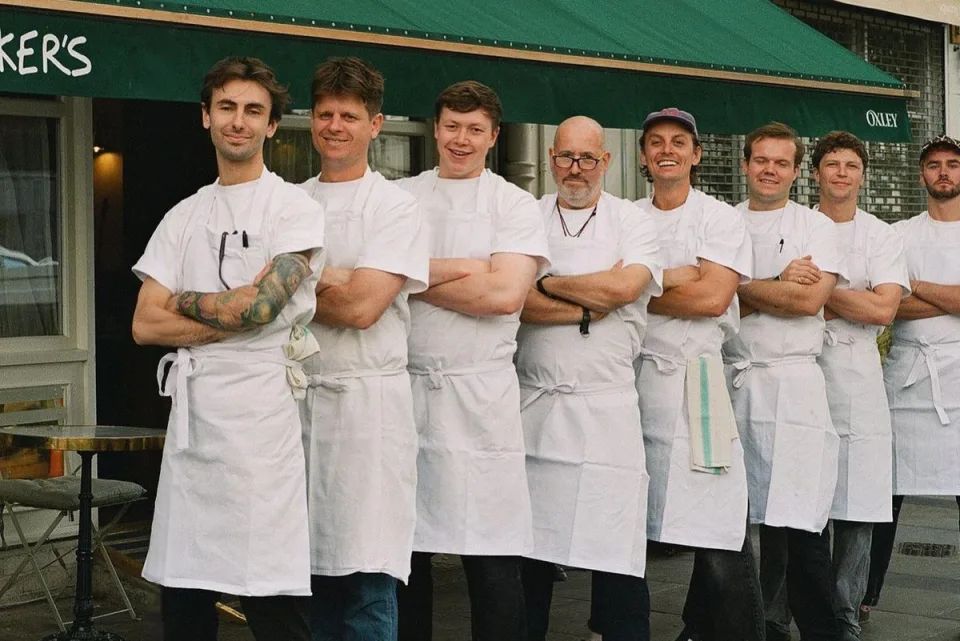
Over this summer, chef Thomas Straker garnered some controversy towards his way upon posting the image above on his socials. He was widely met with a myriad of backlash from others who worked in the industry for only hiring people who are all male and all white.
Initially, to this controversy Straker responded by saying that: “Honestly, people need to calm down. Firstly, there is a shortage of chefs/hospitality workers. Secondly, if you feel so passionately, please go and gather CVs of any chefs you think we’re missing in the team. Solutions not problems. Thank you.”
Although it is important to note that Straker later apologised for such remarks where he also said: "I am absolutely committed to ensuring diversity in my restaurants, unfortunately we aren’t achieving this in my kitchens currently and this is an area I know I need to improve on, making sure it is seen as a welcoming and approachable environment for all."
While the gender imbalance in hospitality has been improving since 2017, there is still a long way to go towards equality; this situation is a perfect example of how workplaces should advertise their hiring calls on a variety of job platforms to attract more women and POCs in the industry.
In the UK, only 18.5% of professional chefs are women and this gap is present at the top of the ladder too — of the UK’s 12 three-star Michelin restaurants, just two are owned by women, and just one female chef made it to the top 10 of the Best Chef Awards’ 100 best chefs of 2022.
Although improving in diversity and inclusion more-so than ever by hiring through a variety of channels and job platforms, the gender imbalance in the industry still remains persistent. This may not only be because of less thought given into diversity and inclusion in the hiring process, but also because of reasons more sinister.
"We're too busy and too close and we spend too much time together as an extended, dysfunctional family to care about sex, gender preference, race, or national origin. After level of skills, it's how sensitive you are to criticism and perceived insult- and how well you can give it right back- that determines your place in the food chain."
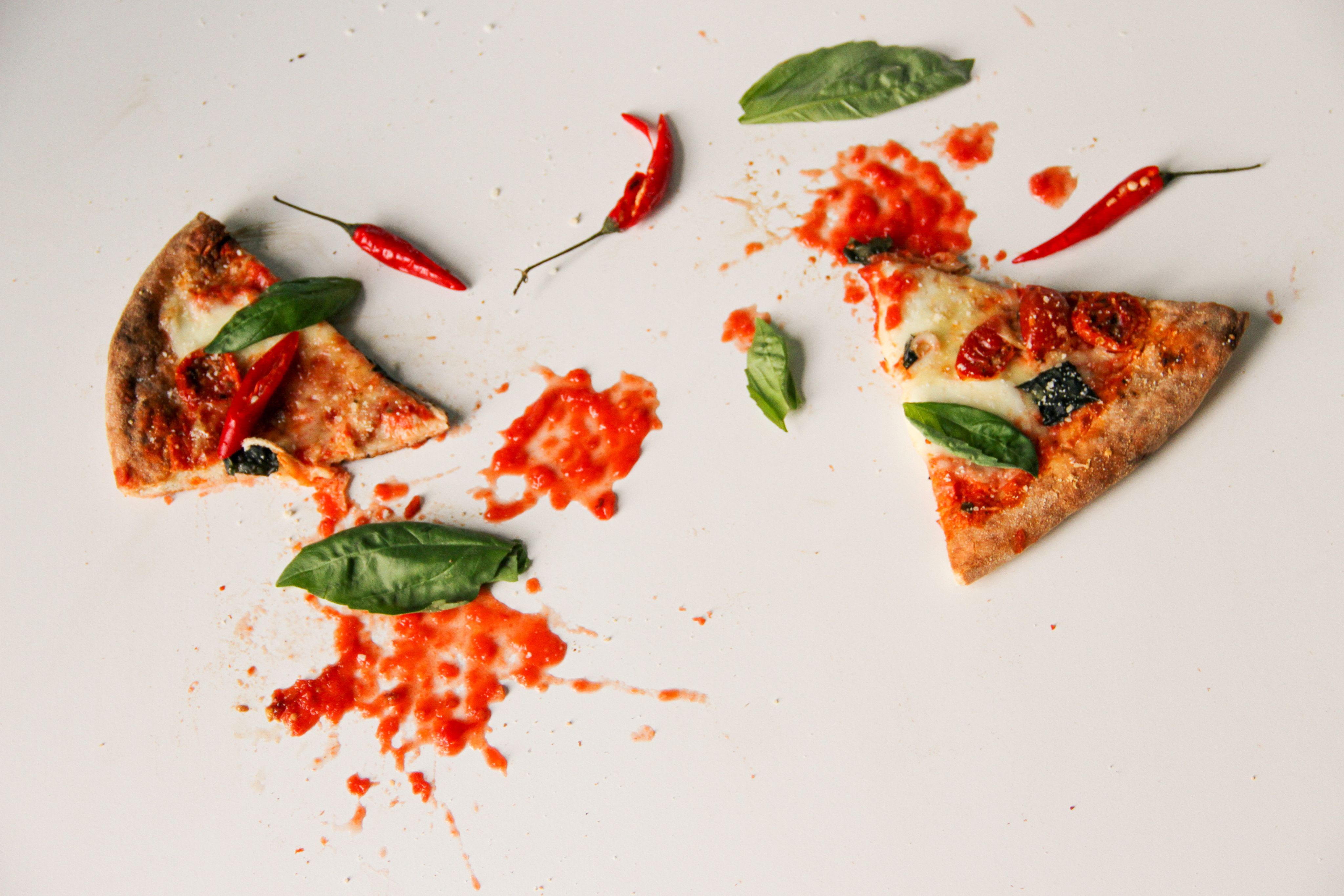
Hospitality (particularly restaurants) is one of the most toxic industries for women. Unlike the outings we're seeing in media and entertainment, abusers here aren't widely known/famous. Please let's encourage women, whether in kitchens or service desks to come forward+ https://t.co/dDByizCYG3
— Rage Rover (@dire_nair) October 12, 2018
I work in the restaurant industry and have been saying this FOR YEARS. Only men can be successful in a professional kitchen because, you know, knives and fire and money. Restaurant kitchens are breeding grounds for toxic masculinity and misogyny.
— BJT0223 (@BJT0223) November 14, 2020
And that’s why my dream of opening a restaurant has been on hold for years. I can’t rock with the typical restaurant kitchen toxic environment. https://t.co/vGzK62T6Mk
— Sea Way (@cpettway79) January 19, 2023
Misogyny, Sexual Harrassment and Sexual Assault
As established before, the technical reasons for the shortage in the industry such as inflation, rising costs and immigration restrictions from Brexit, are more widely apparent and easy to numerise into statistics and make it into quantitative data, however, it is arguably more difficult to numerise and standardise the systemic issues of abuse and bad treatment in the industry, with many reluctant to come forward about said abuse, or many coming out about it later than the time of the situation taking place or later in their career.
This issue exists in other industries as well, but it is important to acknowledge this issue in the food industry in particular. As some chefs told researchers they would not misbehave or endure abuse directed at them outside the kitchen but found it “acceptable and normal” once through the swing doors.
Although this disparity is well known and well documented, a serious issue in the industry often goes unaddressed: Sexual Harassment and Assault.
Kate Souza is a chef from New York where she works at a a casino restaurant. Souza has always wanted to pursue cooking and has been professionally trained.
She was sexually harassed by the head chef at her restaurant and it took her some time to realise that she was harassed.
Kate Souza- "If this was one of my male colleagues would this have happened?"
Kate Souza- "If this was one of my male colleagues would this have happened?"
Kate had some back pain on one of her days at work, as she was leaving work, her head chef insisted that he could help, and took her to the back office with no one around the area, and insisted that she perform stretches with suggestive poses to "help" her. She later realised that this was not a professional way for the head chef to behave with her.
She took matters to HR, but instead of investigating and firing the head chef, the company made her move kitchens instead, with the head chef still remaining in the same restaurant and the same position.
Another anonymous interviewee, Anon B, has had many difficulties working in the industry since their first chef job at 18, including but not limited to sexual harassment and sexual assault.
Anon B always wanted to be in the industry and started their first job as a pastry chef in a kitchen near their hometown.
Although they were enthusiastic to start in the industry, they started to realise how broken the systemic issues were especially in concern with sexual harassment.
In one of their workplaces during their early years in the industry, they mentioned that the head chef in this workplace was often flirtacious which bothered them. They said they were in the changing room getting ready for work:
"All of a sudden the head chef comes in without knocking and i'm not fully clothed, he forced himself on me and started kissing me. I told him to stop but he didn't"
Anon B has also had other moments of powerlessness when working as a young individual in the industry. In the second kitchen they worked in during a summer holiday, they were victim to a brutal form for sexual assault by their head chef, where the head chef fully forced himself onto them when no one was around.
In this case the situation was so serious that the police had to get involved. Anon B pressed charges against the head chef and their position at the restaurant was suspended. Anon B also mentioned that the restaurant failed to do a background check on the head chef prior to hiring them. After police was involved, it was made clear to Anon B that the head chef was a repeat offender and previously had charges filed against him by other hospitality workers.
"It's awful what I went through at such a young age, i'm surprised it didn't put me off from the industry completely.I would understand why anyone else would give up but I really do love cooking in the kitchen so much, so I obviously took action and left that job but joined a new job."
Although Anon B has been through these experiences, it did not completely put them off of pursuing culinary arts and they have started a new job that treats them a lot better.
Tünde Mészáros has been a chef in the UK for the past five years . She started off with full-time contracts in particular restaurants but then decided to pivot to agency work where she brings her skills with sous chef experience.
Tünde Mészáros (Sous Chef)- "You spend more time with your work colleagues than your family, so you can not afford to work in a place where you feel bullied or harassed or not appreciated"
Tünde Mészáros (Sous Chef)- "You spend more time with your work colleagues than your family, so you can not afford to work in a place where you feel bullied or harassed or not appreciated"
Mészáros, although very experienced, has been undermined numerous times by other male colleagues in different instances at work.
The undermining would go on a step further at times where her colleagues would try to harass and pursue her to the point where she had to leave the particular job and apply elsewhere for privacy and safety reasons.
Mészáros, said: "We need to respect each other and if anybody who is not able to work with others and anyone who is not able to handle the stress properly because it is a stressful job, we have to call them out."
However, it is also important to acknowledge as previously mentioned, situations involving any form of abuse is often difficult to call out as many kitchens still hold on to the value that anything goes behind those swinging doors.
With all three of these cases, each admitted that they realise the reality that they are in an industry that may have deep-rooted and normalised toxic work culture. But they also admit that they are hopeful that they can be the fresh change that the industry desperately needs. Perhaps there is hope for chefs realise that they are being abused without having to leave their jobs like Linsey Danis.
That Bittersweet Feeling
With all these revelations of shortcomings, pursuers of the culinary world can not help but feel a sense of pointlessness upon joining this industry.
It is apparent that the shortage in the industry is not solely due to external factors such as new visa rules and inflation, but rather internal factors within kitchens such as abuse, misogyny and sexual-harassment which can also result in the persistent shortage in the industry even beyond temporary economic troughs.
Dismissing this factor by claiming that the shortage in the industry is only caused by external factors such as immigration and inflation and denying that this problem of abuse exists in kitchens will not help with kitchens being shot-staffed, for the long term.
As one of the interviewees, Tünde Mészáros, said: "This is something we have to talk about. All of us (chefs) have to talk about it."
But this remains a difficult topic of discussion as many may dismiss this persistent issue due to other issues already doing a fair job in providing economic explanations for the shortage in the industry.
The industry can prosper with more talented chefs not having reasons for leaving the industry if people who are already in the industry work on these issues to make the industry a better environment to work in.
As for now, the uncertainty and lack of studies conducted on this issue in the industry means that career pursuits in this industry lingers with a bittersweet feeling.
There are also obvious economic realities that prevent many from leaving violent and abusive workplaces. After all, there are bills to be paid.
A chef, who remains un-named, featured in an article by The Irish Times said: “Our whole industry is built on the ‘just do it, chef, or I’ll find someone who will’ mentality. But that is finally starting to catch up with the industry, and now they think the answer is to just recruit from other countries so they can bring people here to be treated in the same manner. The answer is not to ship the misery onto the next guy, but to reform the industry.”
However, quitting is difficult in light of the other upsides to professional cooking, such as creativity and freedom, sensory stimulation and reciprocal joy from watching a satisfied customer eat.
As another interviewee, Anon B, said: "I thought about quitting a few times, but I love cooking in a kitchen too much. And the place I work at now, they treat me a lot better and I feel safe there, I just wish that more places were like my current place of work."
Many would want to stay in the industry solely due to their passion for creating culinary masterpieces. Many may find themselves stuck for the sake of financial stability. However, many may have no choice but to leave the industry regardless of their love for cooking.
The industry can improve for the long-term if behaviour, attitudes and perceptions of chefs change, and if the topic of abuse in kitchens is taken seriously.
The only people who can start making such changes are chefs themselves, by first realising that the problem of abuse does indeed exist in the industry instead of perpetuating the mantle of toxicity themselves, and then creating a better workplace for the current and future generations of chefs.

